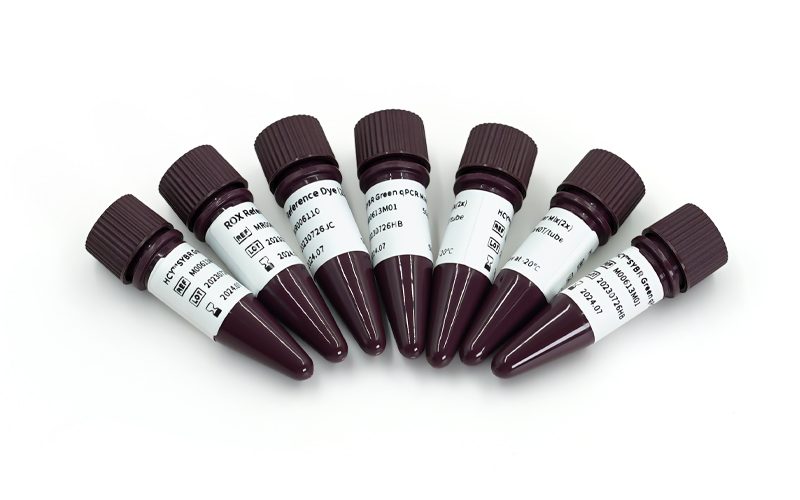What are the Roles of DNA Polymerase ?
6135High-fidelity enzymes represent a distinct class of DNA polymerases known for their specific characteristics, making them crucial in molecular biol...
View detailsSearch the whole station Pandemic Supply
Lyophilized PCR (Polymerase Chain Reaction) reagents refer to the components necessary for conducting PCR, a molecular biology technique used to amplify DNA or RNA. These reagents are typically freeze-dried or lyophilized to extend their shelf life and stability. Here’s a brief description of lyophilized PCR reagents:

Lyophilization involves freeze-drying the PCR reagents, removing moisture, and sealing them in airtight containers. This process enhances their stability, allowing them to be stored at room temperature for an extended period without degradation.
Lyophilized PCR reagents are convenient to handle and transport. They are less prone to spillage or contamination compared to liquid reagents.
Since lyophilized reagents are sealed, there is a lower risk of contamination from environmental pathogens or nucleases, ensuring the integrity of the PCR reaction.
Lyophilized PCR reagents can be customized to include specific components required for a particular PCR assay, such as primers, DNA polymerase, nucleotides, and buffer solutions.
By lyophilizing reagents, manufacturers can reduce the volume, making them more concentrated. This not only saves storage space but also allows for multiple reactions to be set up using a single vial, minimizing reagent wastage.
To use lyophilized PCR reagents, researchers typically add a specific volume of sterile water or buffer to rehydrate the components, returning them to their active state. This reconstitution process is straightforward.
Lyophilization ensures consistency in the quality and performance of the PCR reagents, as they are produced in controlled conditions and have known concentrations.
Lyophilized PCR reagents are used in a wide range of applications, from basic research in molecular biology to clinical diagnostics. They are especially valuable in settings where access to refrigeration may be limited.
In summary, lyophilized PCR reagents are freeze-dried components used in the PCR process to amplify DNA or RNA. They offer benefits such as long-term stability, reduced contamination risk, ease of handling, and customization. These advantages make them a valuable resource in molecular biology laboratories and diagnostic applications.
“HCY, Health care for you” is our forever mission. We dedicate to offering safe & reliable products and medical services with our global creditable partners. HCY has already supplied to WHO, MAYO clinic, MGI, DDC, Yale University, Qorvo, Quanterix, Thomas Scientific, SD biosensor, Cardinal Health, Cleveland Clinic, Mars Petcare & LumiraDx, etc. in the past years.
High-fidelity enzymes represent a distinct class of DNA polymerases known for their specific characteristics, making them crucial in molecular biol...
View detailsHigh-fidelity enzymes represent a distinct class of DNA polymerases known for their specific characteristics, making them crucial in molecular biol...
View detailsLyophilized PCR (Polymerase Chain Reaction) reagents refer to the components necessary for conducting PCR, a molecular biology technique used to am...
View detailsWe value your privacy We use cookies to enhance your browsing experience, serve personalized ads or content, and analyze our traffic. By clicking "Accept All", you consent to our use of cookies.
Our Privacy Policy